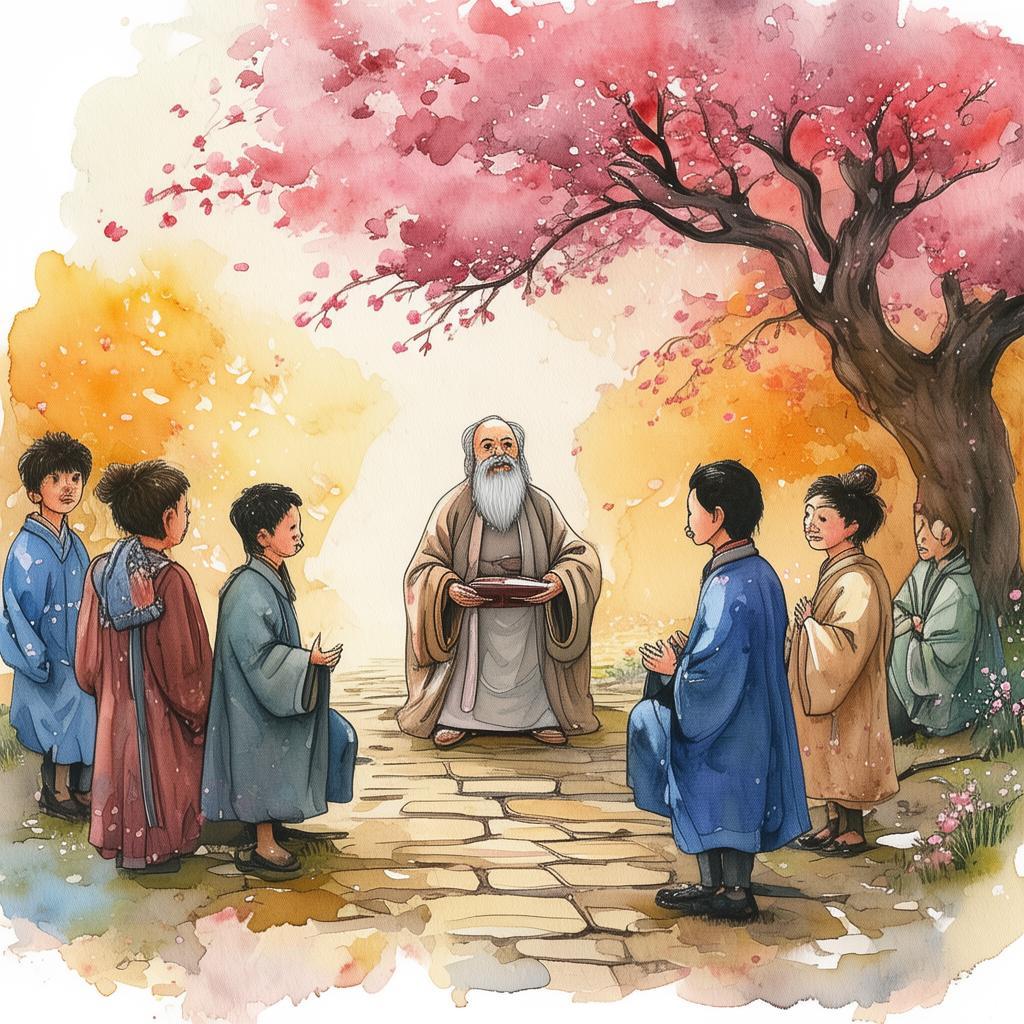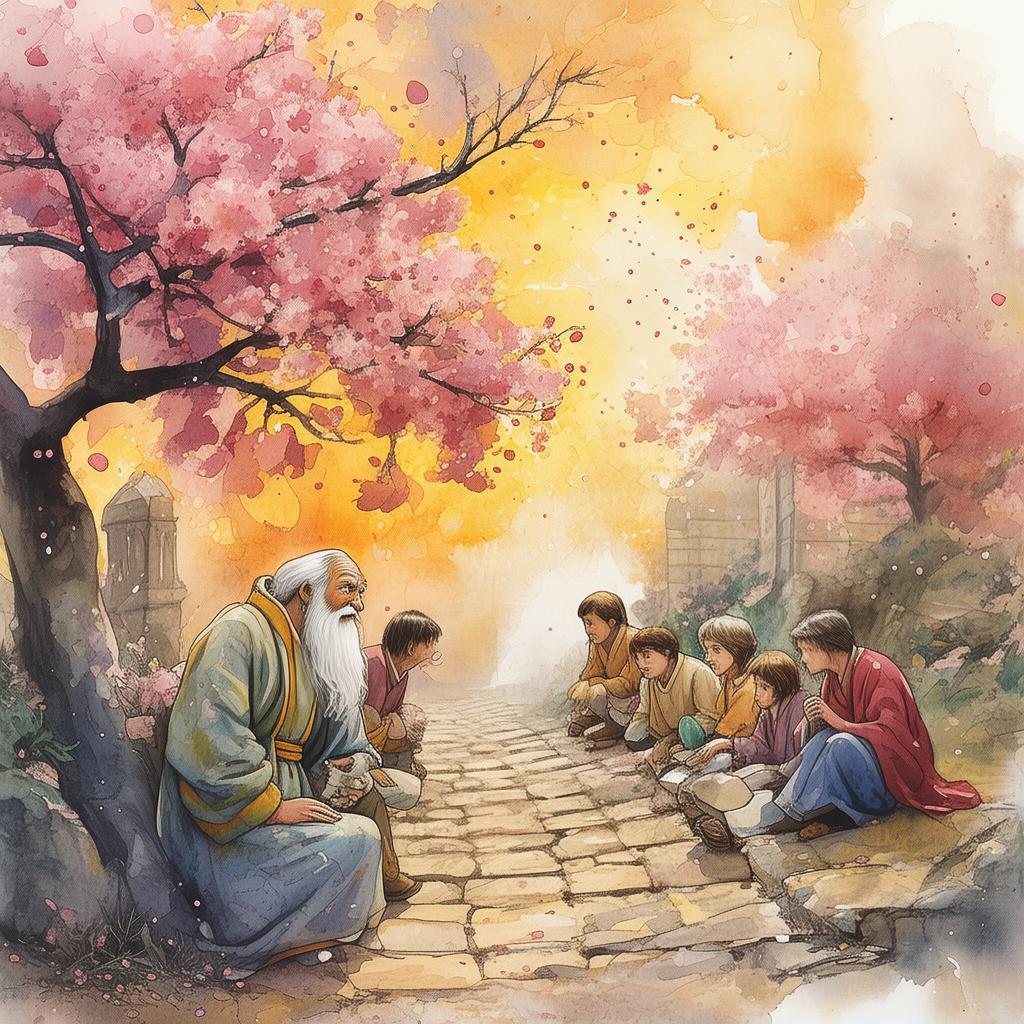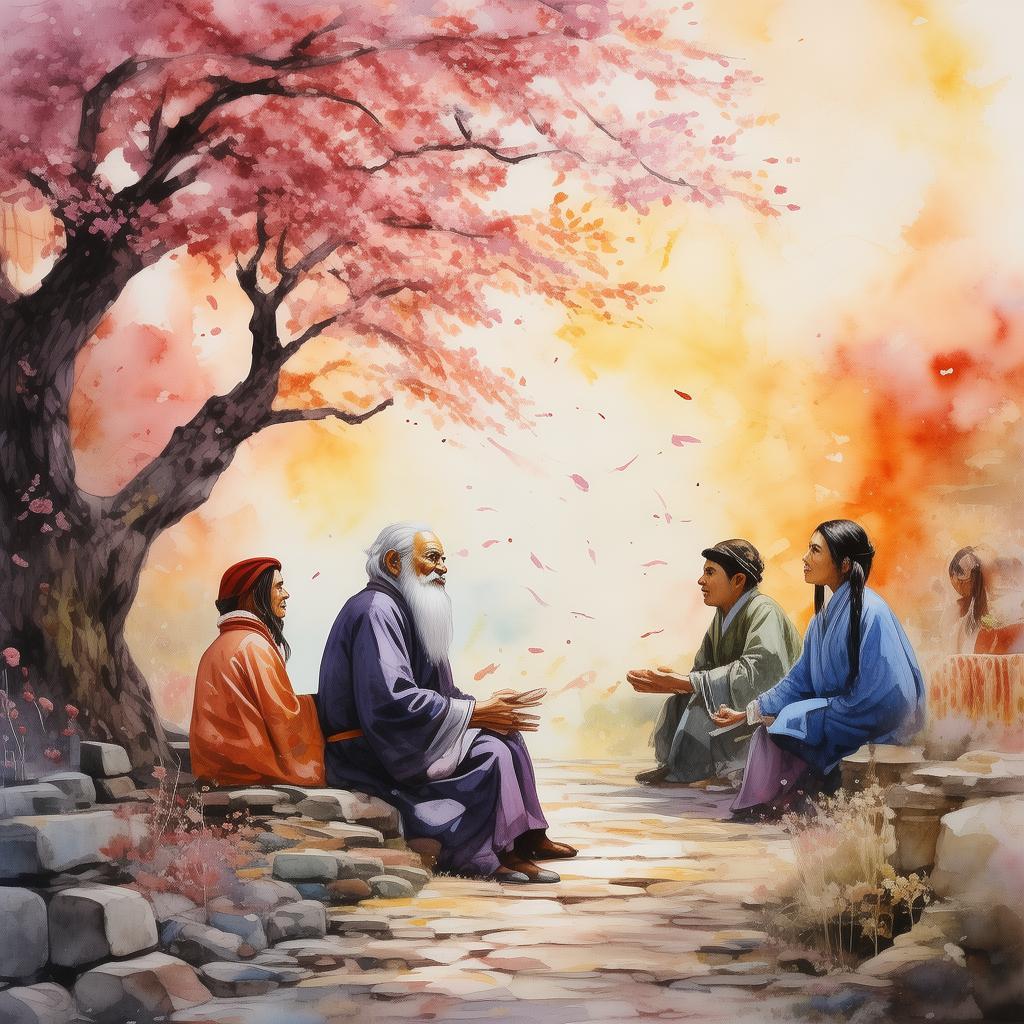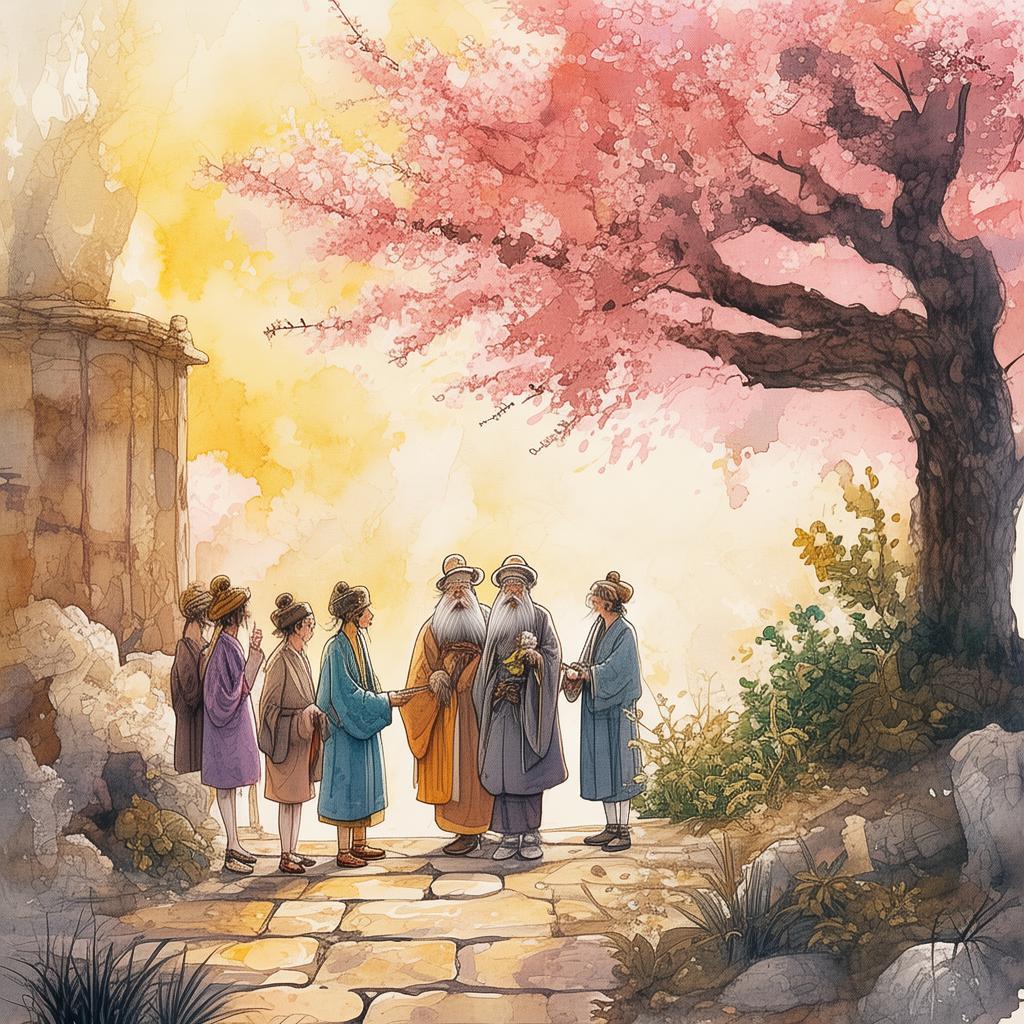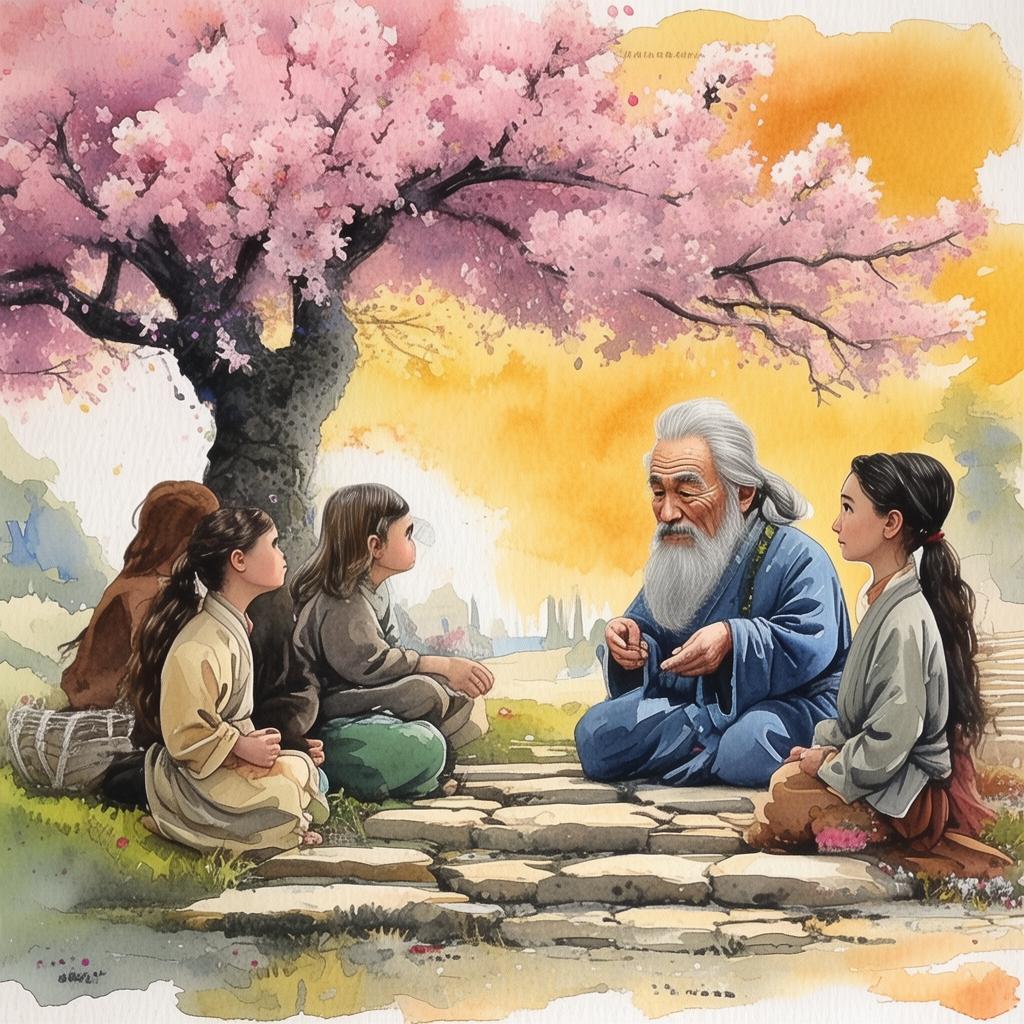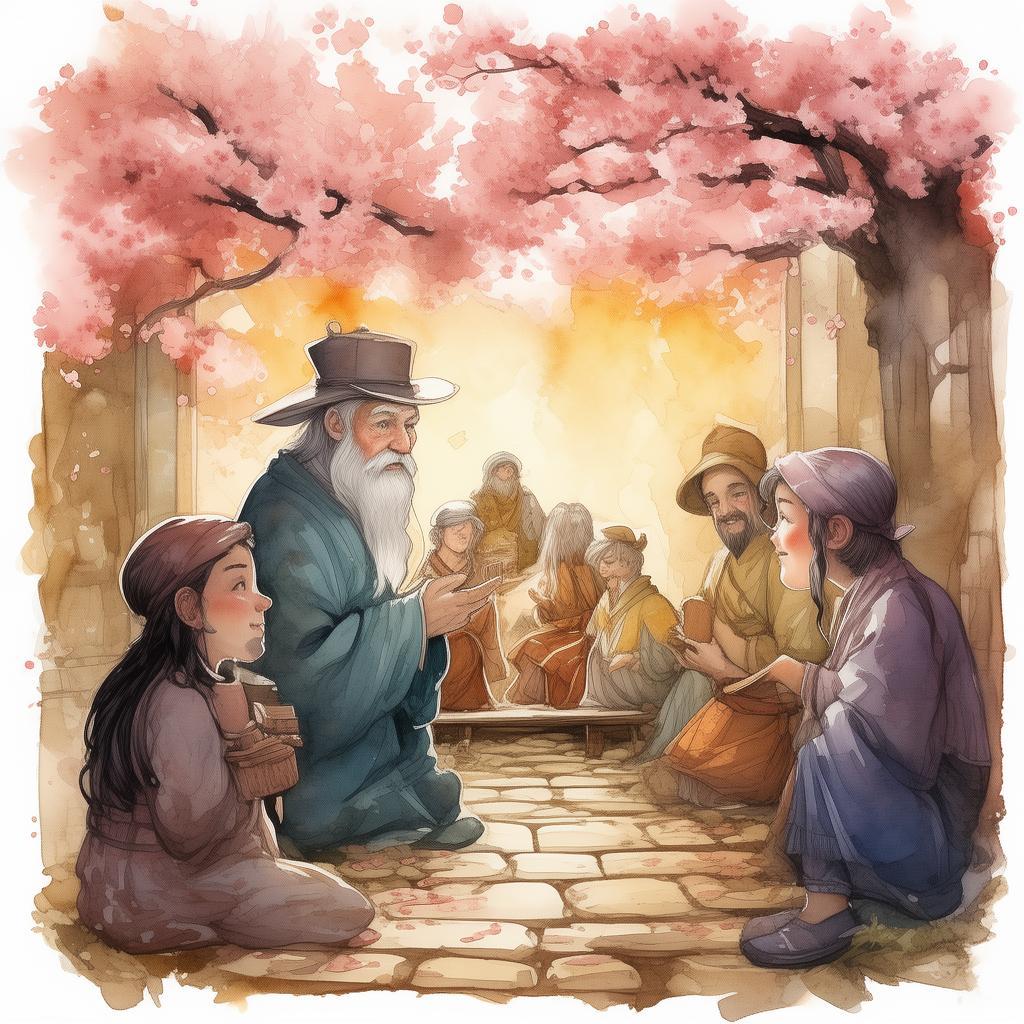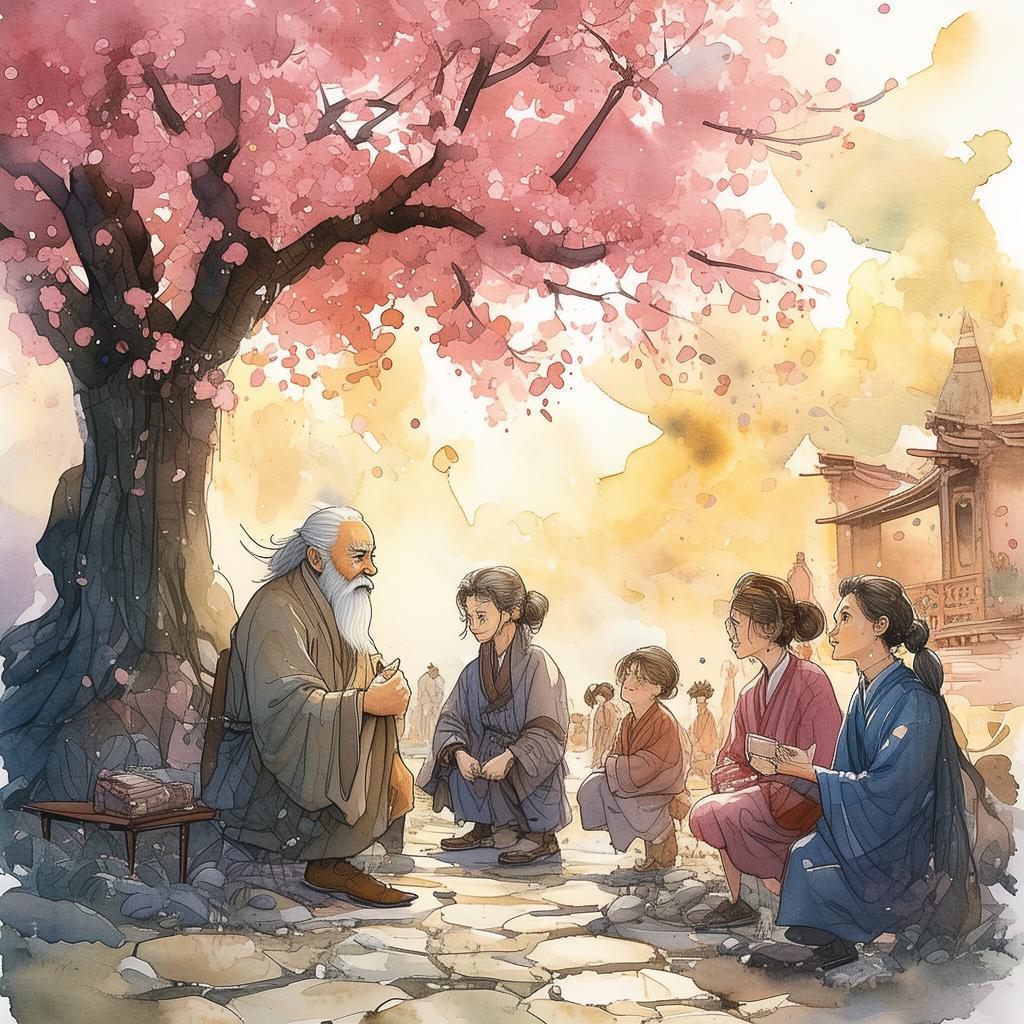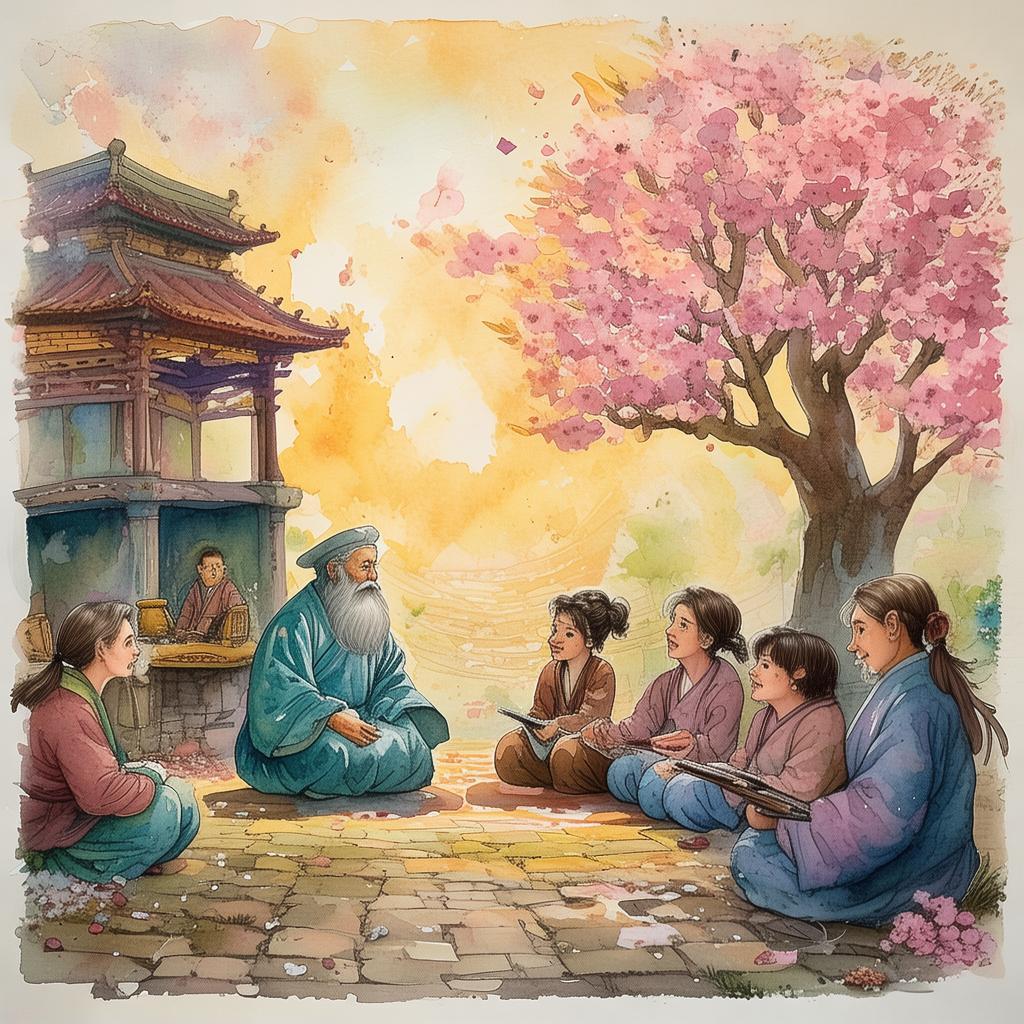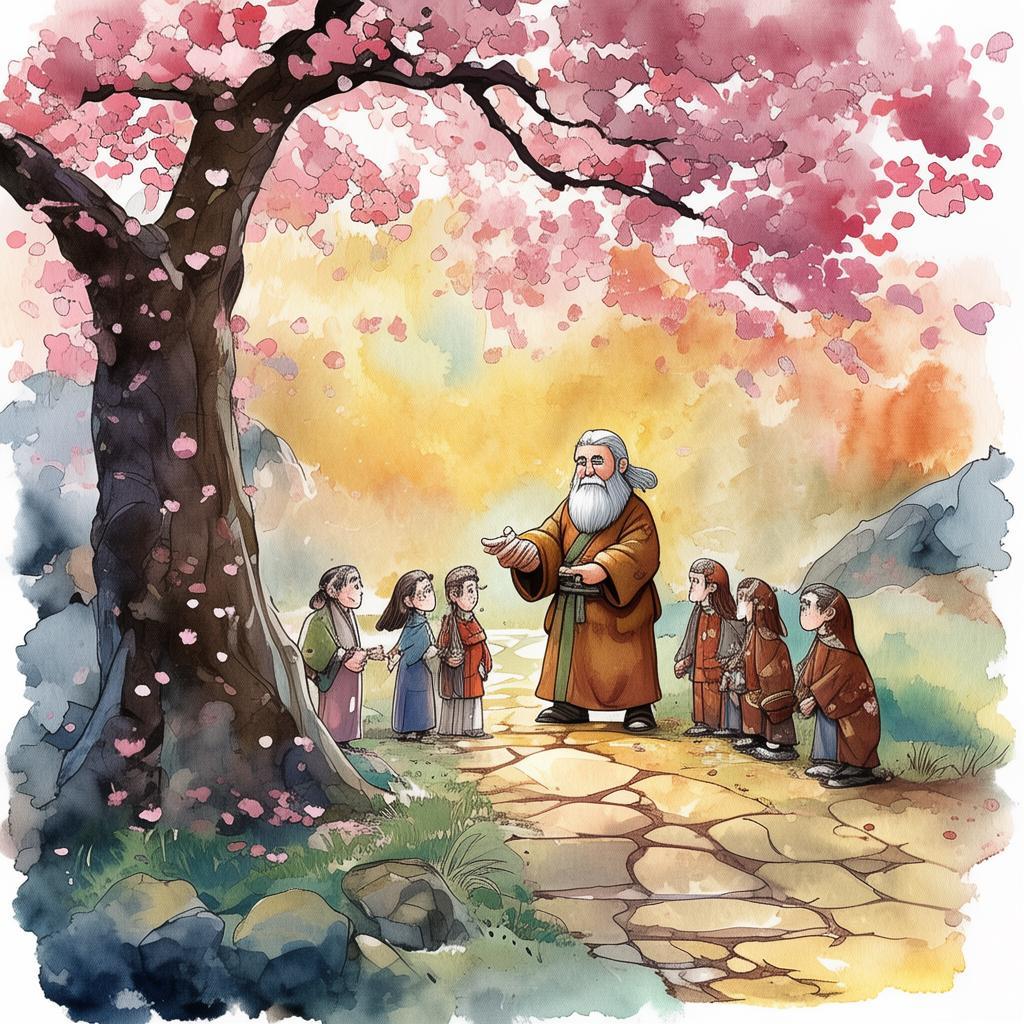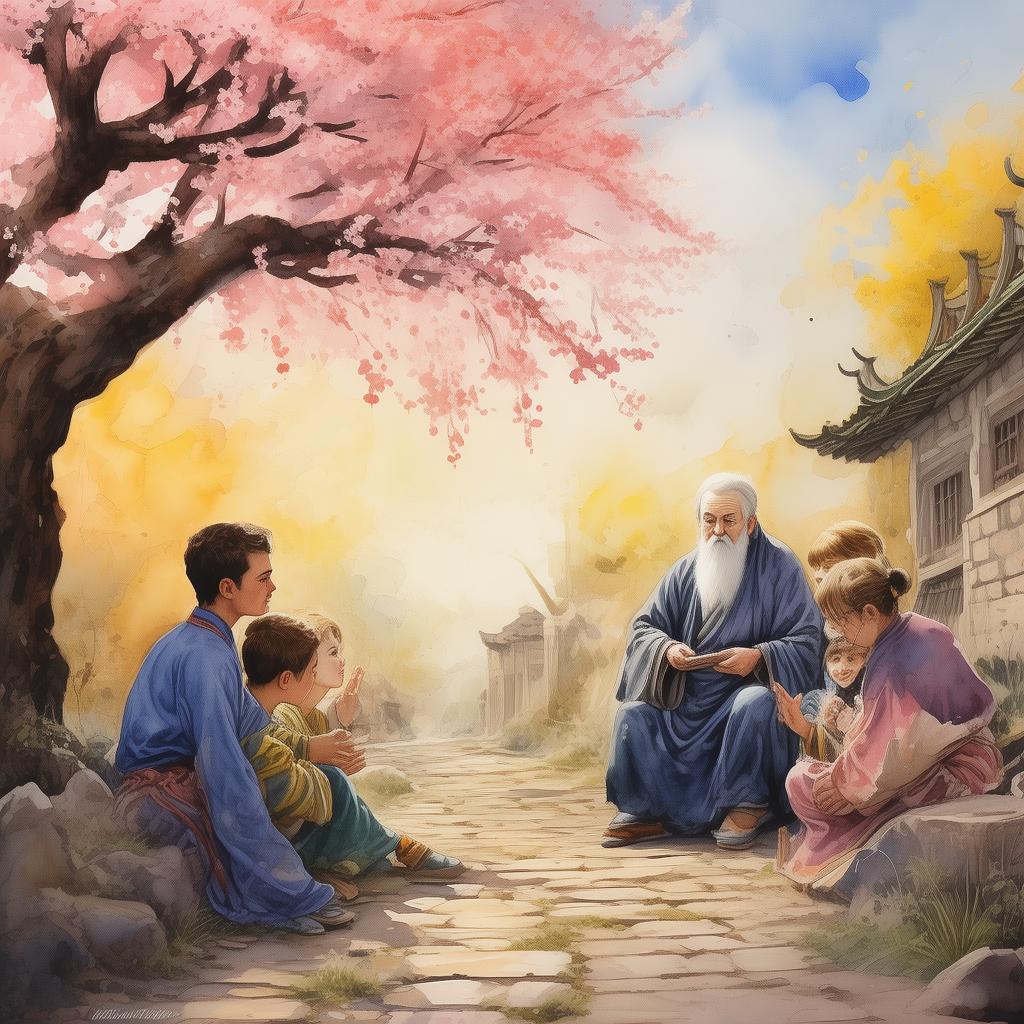Unyielding Pursuit of Virtue: The Sage of Righteousness
In the ancient kingdom of Liancheng, there was a sage named Qingtong who was revered for his unwavering righteousness. His name echoed through the land, inspiring tales of his heroic deeds and selfless acts. Qingtong was known to be the embodiment of virtue, a paragon of moral integrity, and a beacon of justice. His quest for righteousness was relentless, and his dedication to the cause was unparalleled.
The tale begins on a serene morning, as Qingtong walked through the bustling streets of Liancheng. His eyes scanned the crowd, searching for any sign of injustice or moral decay. It was then that he noticed a beggar, shivering in the cold, his eyes filled with despair. Qingtong's heart swelled with compassion, and without hesitation, he offered the beggar his last coin.
"Thank you, sage," the beggar whispered, his eyes brimming with gratitude. "May your virtue never fade."
Qingtong nodded, feeling a surge of pride. He continued his journey, but his mind was troubled. He had always believed that by performing good deeds and upholding righteousness, he could change the world for the better. Yet, he couldn't shake the feeling that there was something missing.
As the days passed, Qingtong's journey took him to the remote mountains, where he encountered a hermit who lived in solitude. The hermit, wise and old, noticed Qingtong's contemplation and offered him counsel.
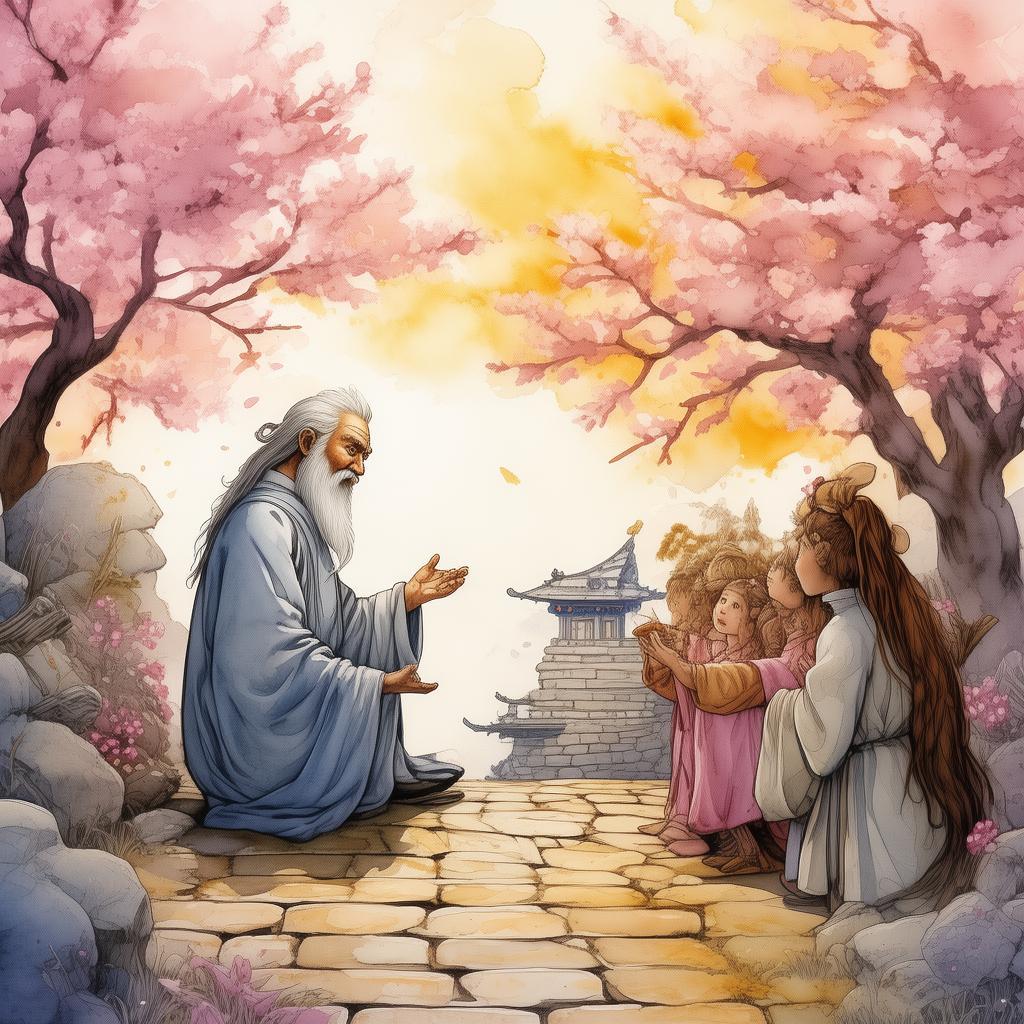
"True righteousness," the hermit began, "is not merely the doing of good deeds, but the understanding of the human condition and the ability to transform one's own flaws. Only then can one truly influence others for the better."
Qingtong's eyes widened, and he realized that he had been blind to his own faults. He had always seen himself as a vessel of virtue, but he had never truly examined his own soul. The hermit's words resonated deeply, and Qingtong knew that his quest for righteousness had to change.
With newfound determination, Qingtong returned to Liancheng, resolved to confront his own flaws. He began by confessing to his closest companions, the flaws he had ignored for so long. They were shocked, but they respected Qingtong's honesty and willingness to change.
One day, Qingtong was called to the palace, where the king had heard of his transformation. The king, a man known for his own corrupt practices, was intrigued by Qingtong's quest for righteousness.
"You say you have changed," the king said, his eyes narrowing. "Prove it."
Qingtong bowed respectfully. "I will show you my true nature, Your Majesty. But first, I must confront the greatest challenge of my life."
The king nodded, intrigued by Qingtong's boldness. "Very well. Tell me, what is this challenge?"
"I must face my past actions," Qingtong replied. "There was a time when I thought I was doing good, but in reality, I was only perpetuating a cycle of violence."
The king's expression softened. "Go ahead, Qingtong. I will bear witness to your journey."
Qingtong's journey led him back to a village where he had once been hailed as a hero. He had stopped a gang of bandits from robbing the villagers, but in doing so, he had unintentionally caused the death of an innocent passerby.
As Qingtong stood in the village square, the villagers gathered around him. Their eyes were filled with pain and betrayal. Qingtong took a deep breath and began to speak.
"I have come to this village to confess my mistake. I thought I was doing the right thing, but I was wrong. My actions led to the loss of life, and for that, I am truly sorry."
The villagers were silent, processing Qingtong's words. Finally, an old woman stepped forward, her voice trembling. "You were once a savior to us, Qingtong. But now, you have shown us humility and courage."
Tears streamed down Qingtong's face as he realized the weight of his actions. He had always thought he was on the right path, but now he understood that true righteousness required more than just good intentions.
As Qingtong returned to the palace, he found the king waiting for him. The king's eyes were filled with respect.
"You have shown more courage today than you ever did in all your heroic deeds," the king said. "True righteousness is not just about doing good, but about acknowledging and correcting one's own mistakes."
Qingtong nodded, feeling a profound sense of peace. He had learned that the quest for righteousness was not about being perfect, but about being willing to change and grow.
From that day forward, Qingtong's journey continued, not as a self-righteous sage, but as a man who was ever-vigilant of his own flaws and committed to the ongoing pursuit of virtue. His story spread throughout the land, inspiring others to confront their own imperfections and to strive for a more just and compassionate world.
✨ Original Statement ✨
All articles published on this website (including but not limited to text, images, videos, and other content) are original or authorized for reposting and are protected by relevant laws. Without the explicit written permission of this website, no individual or organization may copy, modify, repost, or use the content for commercial purposes.
If you need to quote or cooperate, please contact this site for authorization. We reserve the right to pursue legal responsibility for any unauthorized use.
Hereby declared.
